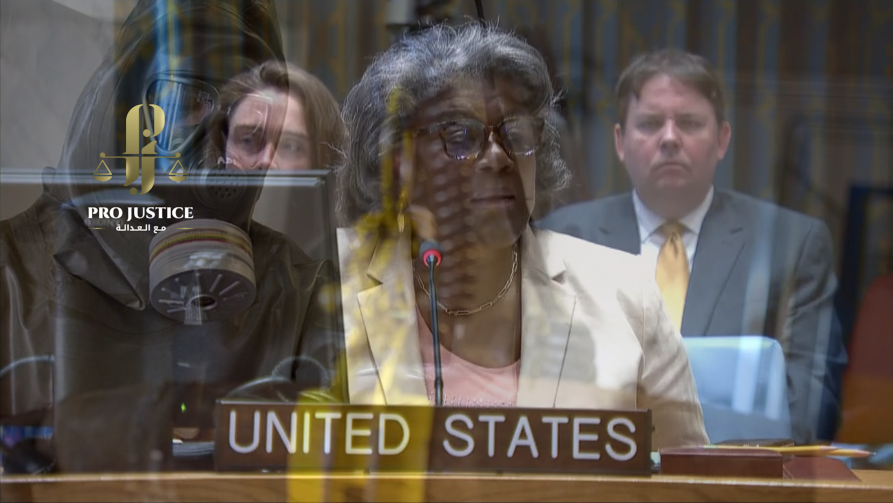Syria has never provided a full accounting of its chemical weapons program. And, despite its obligations under Resolution 2118 to fully cooperate with the OPCW, it has repeatedly obstructed the OPCW’s work.
August 8, 2023

UNITED STATES MISSION TO THE UNITED NATIONS
Office of Press and Public Diplomacy
AS DELIVERED
August 8, 2023
Let me start by thanking Mr. Ebo – and the entire team at the UN Office for Disarmament Affairs and the Organization for the Prohibition of Chemical Weapons – for their leadership on this critical issue. And Dr. Katoub, I so admire your courage and advocacy on behalf of the Syrian people.
As Dr. Katoub detailed, ten years ago, early in the morning of August 21, the Assad regime released sarin on Syrian civilians in the Ghouta district of Damascus. This brutal attack killed more than 1,400 people – sadly, many of them children. The world saw toddlers struggling to breathe, and besieged first responders desperately trying to decontaminate their neighbors. Piles and piles of bodies lined the streets. This attack was a sickening milestone in the regime’s campaign of terror against the people of Syria.
Less than a month after the attack, and after broad international condemnation, the Assad regime submitted its instrument of accession to the Chemical Weapons Convention. And the United States and Russia adopted a framework for the complete destruction of the Syrian chemical weapons program. This was followed shortly thereafter by this Council’s adoption of Resolution 2118.
We now know that the regime never planned to comply with the CWC, and that it willfully hid chemical weapons from the OPCW. In fact, since acceding to the CWC in September of 2013, the UN and OPCW’s investigative mechanisms confirmed Syria used chemical weapons against its own people in nine subsequent attacks. The Assad regime has repeatedly lied to the international community and the investigators examining these incidents.
Syria has never provided a full accounting of its chemical weapons program. And, despite its obligations under Resolution 2118 to fully cooperate with the OPCW, it has repeatedly obstructed the OPCW’s work.
For all these reasons, Assad’s chemical weapons attacks demand this Council’s continued attention. The Security Council cannot allow Assad and his henchmen, who have killed thousands of people, to get away with these atrocities. To do so would endanger all of us. It would mean turning a blind eye to regimes that choose to manufacture, stockpile, and use chemical weapons.
We have heard some of our colleagues say that our monthly meetings on this issue feel repetitive. And I have to say that I regret today that two permanent members have indicated they will not speak today on a matter of such gravity.
But the Assad regime is betting this Council will simply move on. It is hoping we will change the subject. We must not succumb to fatigue, or worse, indifference. The Assad regime used weapons of mass destruction against its own people. Against its own people.
And we will not move on, and the regime will not escape accountability. Syria has a duty to implement its obligations under the CWC and Resolution 2118. We urge Damascus to stop delaying, obfuscating, and spreading disinformation.

And we continue to press for action at the OPCW, as well as here in the Security Council – so the OPCW can make progress toward fulfilling its investigative mandate, which has shed light on the regime’s numerous chemical weapons attacks.
And let me be clear: the United States remain committed to pursuing justice for the victims of Ghouta and other chemical weapons attacks. We must never forget the victims and survivors of these attacks. Their loved ones deserve justice. The Syrian people deserve justice.
And this Council must come together to demand justice – and, at long last, real steps to end Syria’s chemical weapons threat.
